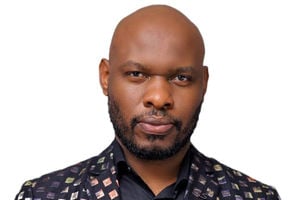Prime
FDC’s Obote-Kakonge moment as SG clashes with chairperson

Author: Asuman Bisiika. PHOTO/FILE
What you need to know:
- ...with the government as an interested party in this feud, FDC members will find it difficult to rally their party.
In the run-up to the 2016 General Election, the most exciting thing was the presidential aspiration of Mr Amama Mbabazi. At a youth conference in 2014, Mr Mbabazi made subtle remarks pointing to his presidential ambitions. Later, a group of youth demonstrated in Kampala expressing support for Mr his unannounced presidential aspirations. In addition to their support for Mbabazi, the demonstrators also denigrated President Museveni. Expressing support for an aspiring candidate was OK; but by denigrating Mr Museveni publicly, a line had been crossed: a complete fall-out between Mr Museveni and Mr Mbabazi was manifest.
Mr Museveni was the NRM party president and Mr Mbabazi was the party secretary general. Writing at the time, I likened the feud between Mr Museveni and Mr Mbabazi to the Obote-Kakonge clash of the 1960s. Apolo Milton Obote was the Uganda Peoples Congress (UPC) party president, while John Kakonge was the party’s secretary general.
However, Kakongo’s national popularity and influence on the party structures (and the youth) made the party president and executive prime minister Obote insecure. This generated internal party conflict that came to a head during the 1964 UPC delegates conference in Gulu.
However, the lesson from the 1964 Gulu incident is that the party never recovered: Gulu marked the beginning of a party whose stock continued going down until the military deposed it from power in 1971. Before the coup, party co-founder and legal adviser Grace Ibingira, in spite of himself, had also fallen out with Obote and had been arrested during a cabinet session and later detained.
With hindsight, the UPC was later to amend its constitution to give the party president the power to appoint the party secretary general. Needless to say, after the Museveni-Mbabazi clash in the run up to the 2016 General Election, NRM’s constitution was amended to give the party president the power to appoint the party secretary general.
Enter Forum for Democratic Change (FDC). Ambassador Wasswa Biriggwa is the FDC party chairperson. The constitution of the FDC gives power to the party chairperson to call and chair the party’s Extra Ordinary Delegates Conference.
And indeed the FDC party chairperson has called an Extra Ordinary Delegates Conference slated for September 19. But as I wrote this piece last Thursday, FDC party secretary general Nandala Mafabi had already sought police intervention to stop what he called an illegal delegates conference. And as the Baganda say, “nezidda okunywa”. FDC is in a bad situation. Its numerical strength reduced in the current Parliament. It is no longer the Opposition party with the highest number of MPs. That slot was taken by the National Unity Party.
In the circumstances, one would have expected a rallying; but the feud between (and among) the top party leadership has ripped the party apart. With the next elections around the corner, it will be difficult for the FDC to participate in the next elections without strength associated with unity of purpose.
Well, FDC seems to have had its Obote-Kakonge or Museveni-Mbabazi moment in the shape of Mafabi and Biriggwa. But there are differences in scenarios. Obote and Kakonge had no members of their immediate families in the party or government leadership. Museveni and Mbabazi had.
FDC is lucky it is not in government. Neither does the feuding top FDC leaders have immediate family members in the top party leadership. But with the government as an interested party in this feud, FDC members will find it difficult to rally their party.
Mr Bisiika is the executive editor of the East African Flagpost. [email protected]




